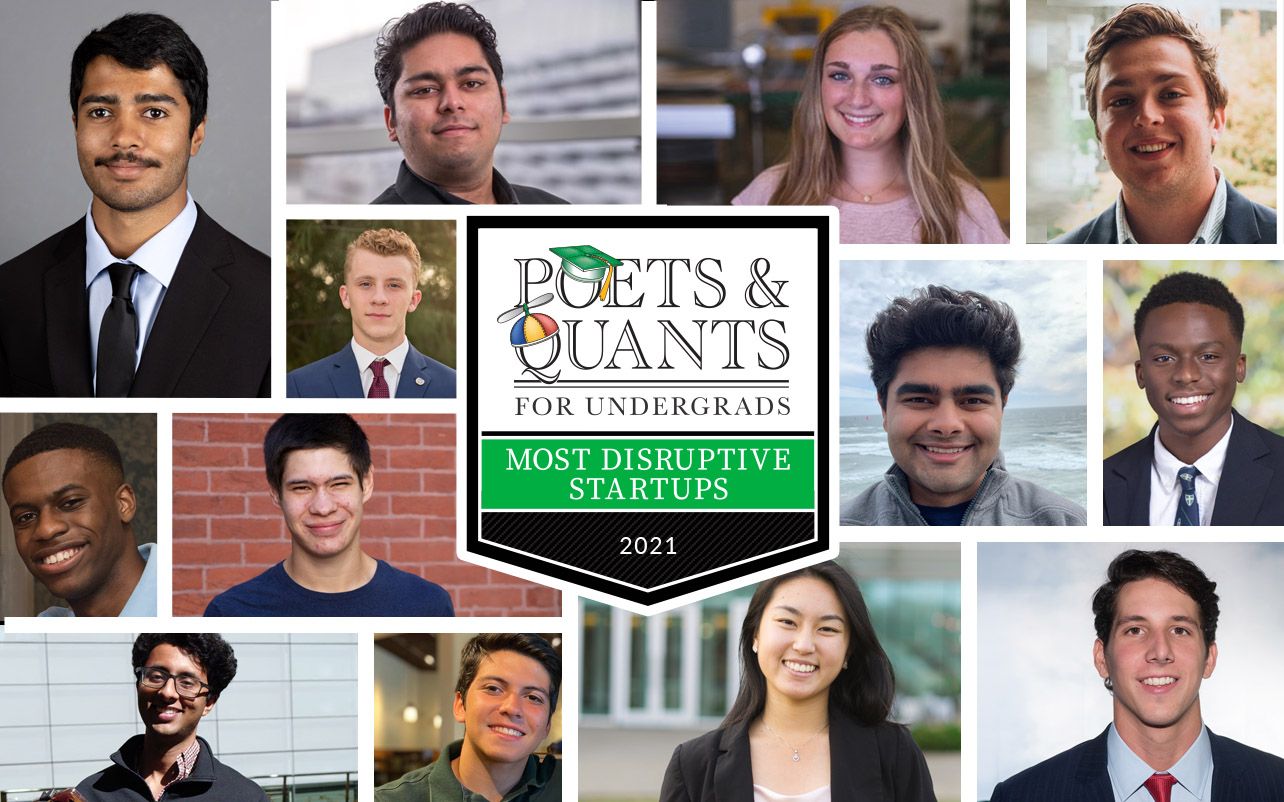
Finding an apartment isn’t easy. Just ask any business major. Call it an introduction to supply and demand. Here, students race to grab any open spot, rarely knowing what to expect. Even more, it is a time-consuming process where students must book several tours, often during hours that don’t fit their schedule.
Pressure-packed, uncertain. inconvenient: That’s the rental process. Amulya Parmar faced these same hassles as a University of Michigan sophomore. They inspired him to seek a solution — a business venture he founded called LeaseMagnets. Combining the power of word and visuals, Parmar’s Tour.video digital platform enables managers to create “personalized video tours” of their properties. Translation: An actual person guides these tours (which are available 24×7). In the process, the guide showcases appliances and exterior views, not to mention common areas like fitness centers, game rooms, and parking. The platform is even flexible enough to accommodate custom tours of varying floor plans. Beyond virtual tours, LeaseMagnets supplies property managers with backend support such as capturing prospect information, connecting with a leasing consultants, and booking in-person tours.
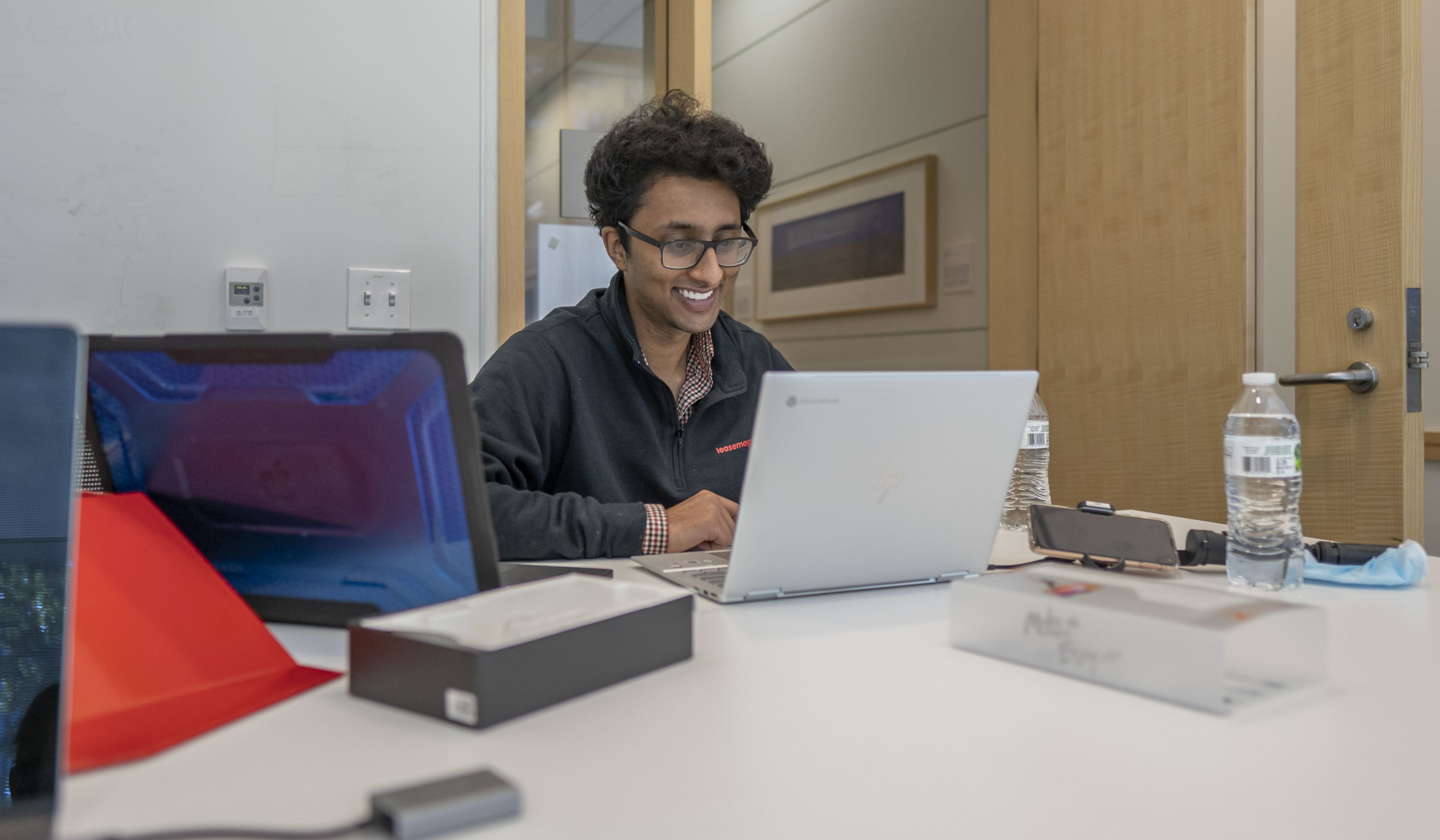
Amulya Parmar, University of Michigan (Ross)
A TRIUMPHANT RETURN
Thus far, Parmar’s vision has been a smashing success. According to Parmar, LeaseMagnets has partnered with over 200 real estate clients and conducts over 20,000 virtual tours daily. His venture also beat out 250 other startups to win the 2021 Michigan Business Challenge and earned an invitation to YCombinator. Parmar was even able to offer 10 internship to students at the Ross School of Business and the College of Engineering, with alumni landing jobs at firms ranging from McKinsey to the Securities and Exchange Commission.
Better yet, he proved his concept worked to the very people who doubted him at the start. “I began knocking on the door of every apartment on the University of Michigan campus,” Parmar tells P&Q. “Eventually, I had our first customer, starting with local apartments here in Ann Arbor, and today we are working with apartments in nearly 30 states (with many of the apartment communities that once said “no” here in Ann Arbor).”
LeaseMagnets is 1 of 14 student ventures honored in Poets&Quants’ inaugural Most Disruptive Business School startups. This year, P&Q reached out to 16 of its highest-ranked business schools of 2021. Our goal: find those startups, launched by business majors, with the potential to upend established models and industries. With this year’s ventures, you could see business school students change the way we eat, learn, clean, and golf.
CREATING COMMUNITY
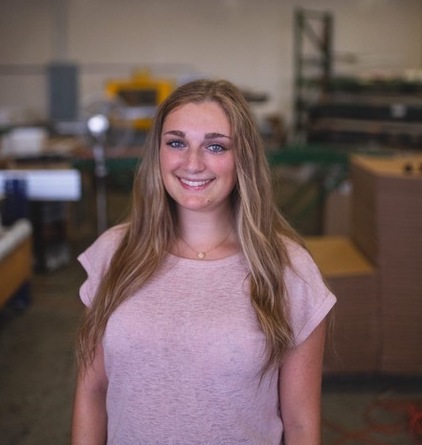
Ayana Klein, Washington University (Olin)
Take 3DuxDesign, an enterprise co-founded by Washington University’s Ayana Klein and her brother Ethan. Technically an architectural modeling system, you can think of 3DuxDesign as applying the Legos concept to cardboard to teach STEM fundamentals. Using various kits, students can design structures and prototypes to solve real world problems. More than products, 3DuxDesign brings together students through online events like its 3DuxDesign Global Student Showcase, a platform where students can show their solutions to other children. The Kleins have also launched 3DuxUniversity, enabling children to connect online with engineers, architects, designers, and artists. 3DuxDesign has even expanded into 3DuxGlobal, where users can interact with peers individually across the globe.
And they’re just getting started…
“Our grand vision is to create an annual 3DuxDesign Innovation Expo, a global celebration of youth creativity, innovation and empowerment for students inspired to design solutions for a sustainable and equitable future,” Ayana Klein explains. “Our EXPO will be in collaboration with leading partners from the most innovative forces in higher education and corporate industry and will showcase student projects from around the world.”
The firm has already been trumpeted by Fast Company in its Innovation By Design Awards. However, Ayana Klein believes 3DuxDesign’s biggest moment is something far more intimate. “I think the greatest accomplishment is really seeing firsthand the impact we are making on the next generation. From traveling to an orphanage in Haiti to working directly with the children to running a program at a housing project in Bridgeport, Connecticut to zooming with 100 first graders in Iowa as they proudly share their 3Dux inventions, the sense of impact is unparalleled.”
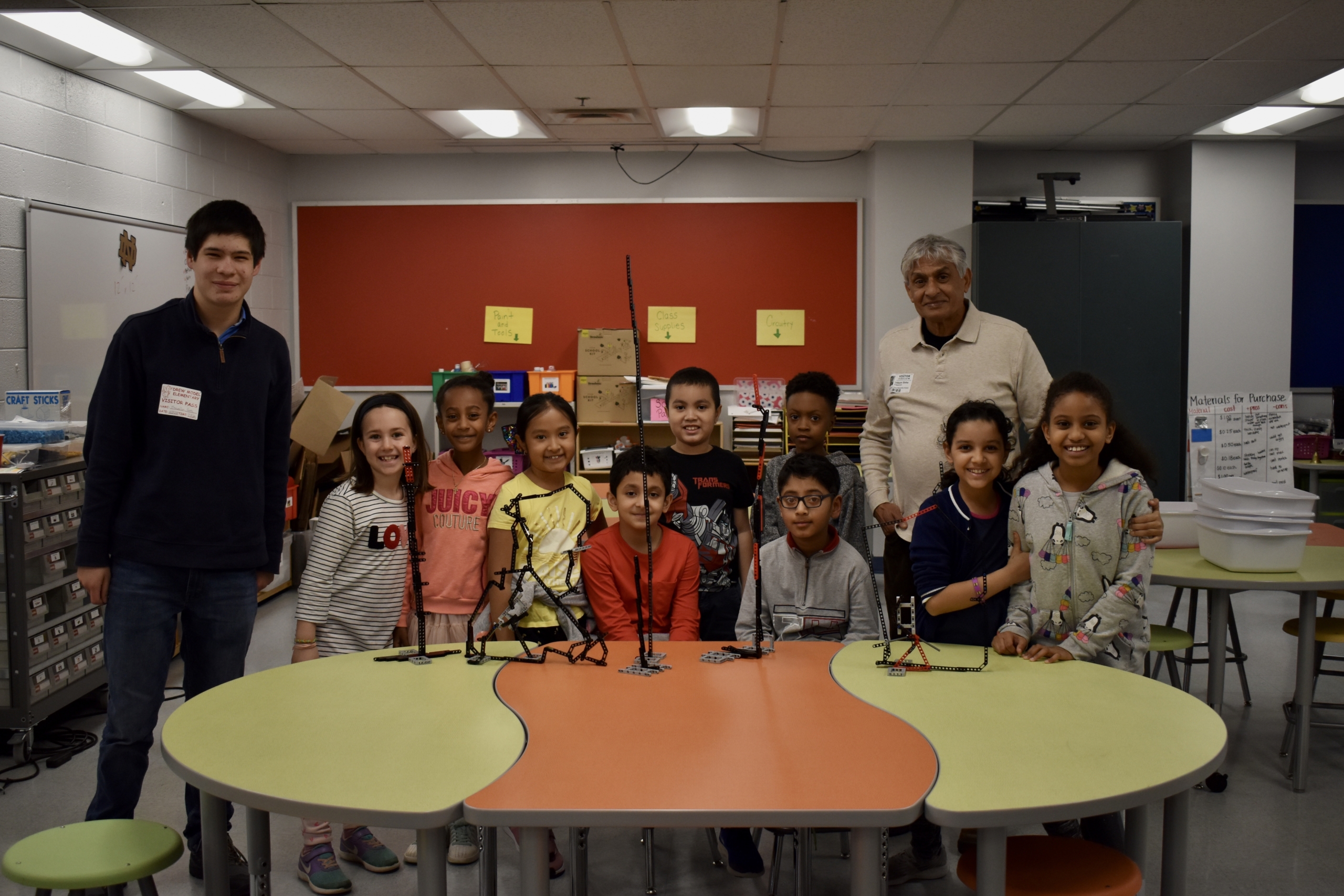
Robotics For All Class (Maximillian Goetz on far left)
ALREADY POISED TO BE A MULTI-MILLION DOLLAR COMPANY
STEM learning is the foundation for Robotics For All, a venture started by Maximilian Goetz, a sophomore at Georgetown University’s McDonough School. A nonprofit, Robotics For All provides in-person and online courses for K-12 students in engineering, programming, and robotics. Lasting eight weeks, the courses already boast 2,000 alumni students. And Goetz expects to increase this number ten-fold thanks to a pivoting his model in response to COVID-19.
“My long-term goal for Robotics For All is to expand to even more low-income communities with a post-COVID hybrid model,” he explains. “Pre-COVID, we only had in-person classes. Our online classes were only introduced as a result of COVID. Going forward, we plan to expand on a hybrid model with both class types. In-person classes enable us to provide a more interactive learning experience, but we need a localized volunteer base. Our online classes enable us to reach any community anywhere, regardless of student or volunteer geography.”
Medicine is another area where you’ll find business majors seeding disruption. At the University of Illinois, Gies’ Jonathan Politzki is the business lead for a multidisciplinary team that has launched Nephra. He describes it as the “Dexcom for chronic kidney disease” — “a handheld ECG that uses machine learning to quantify serum potassium levels for patients on dialysis.” The solution is currently in development, with the hardware expected to be completed by year’s end. When that happens, watch out…
“Unlike many startups, our progress is solely dependent on a singular event of a working prototype,” Politzki explains. “As soon as we get a great prototype, we are immediately a multi-million dollar company due to demand.”
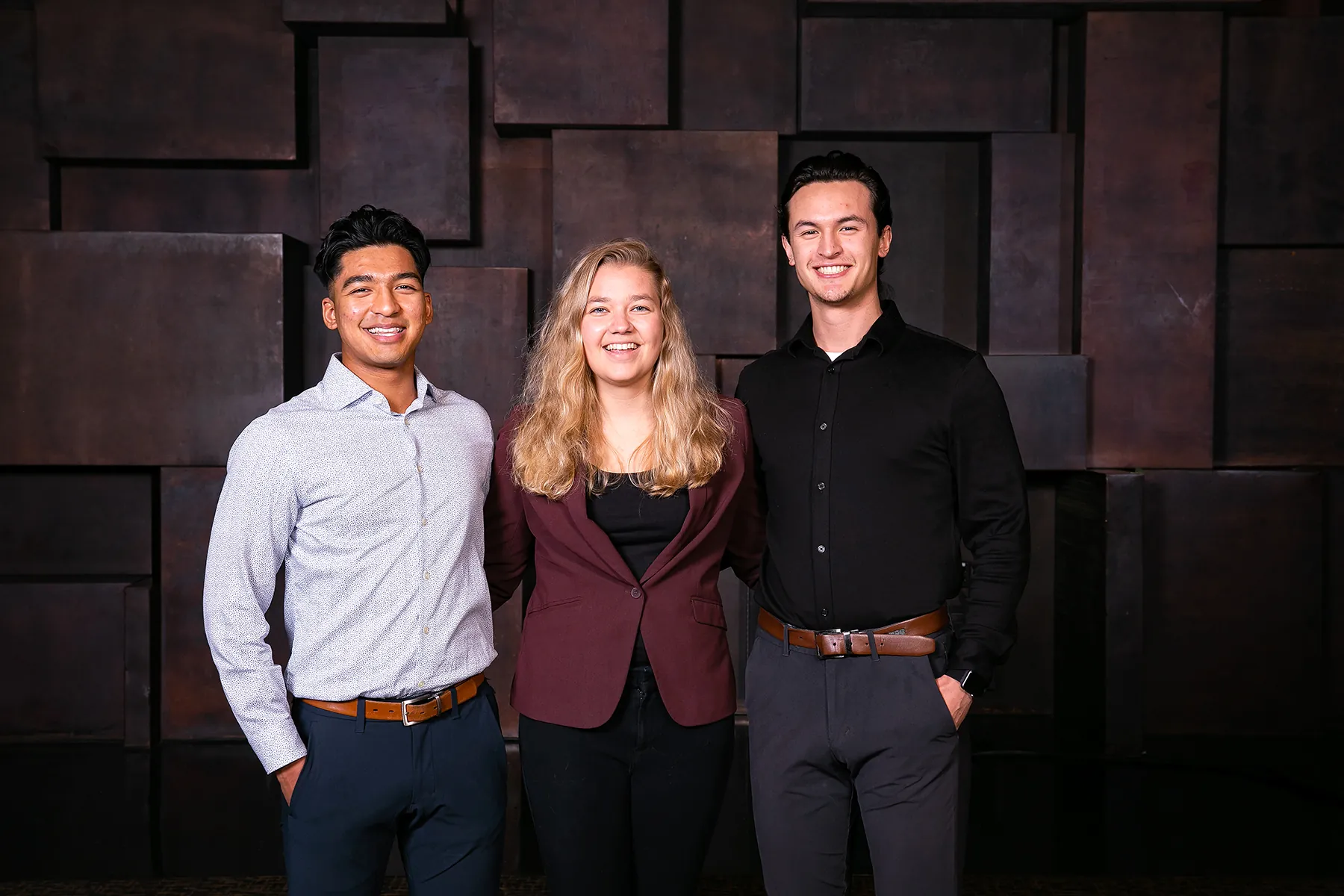
Telo: Rick Pradham (Left), Morgan Kerfeld (Center), and Steven Bleau (Right)
BRINGING TECH INTO MOBILITY PRODUCTS
Telo is equally ambitious. The healthtech firm was founded by three spring graduates of the University of Minnesota’s Carlson School (and one grad from the College of Design). They intend to become a leader in the area of mobility products and services that enable people to continue living independently. That starts, says Morgan Kerfeld, with the company’s “patent-pending posterior rollator” that acts as parallel bars. However, Telo is focused on more than balance and mobility.
“With embedded technology and a mobile application, Telo’s device serves as an activity tracker for a population that cannot utilize traditional wrist wearables. By providing tangible activity tracking, setting baselines, and monitoring progress, Telo’s device helps users take back control over their mobility.”
In addition, the firm plans to channel its revenue back into the marketplace. “Telo is an extremely mission-centric company,” Kerfeld adds. “{We] hope to further our mission by dedicating a portion of our revenue toward sponsoring youth caregivers with support groups and professional caregiver training so they can go on to create an even larger impact in healthcare.”
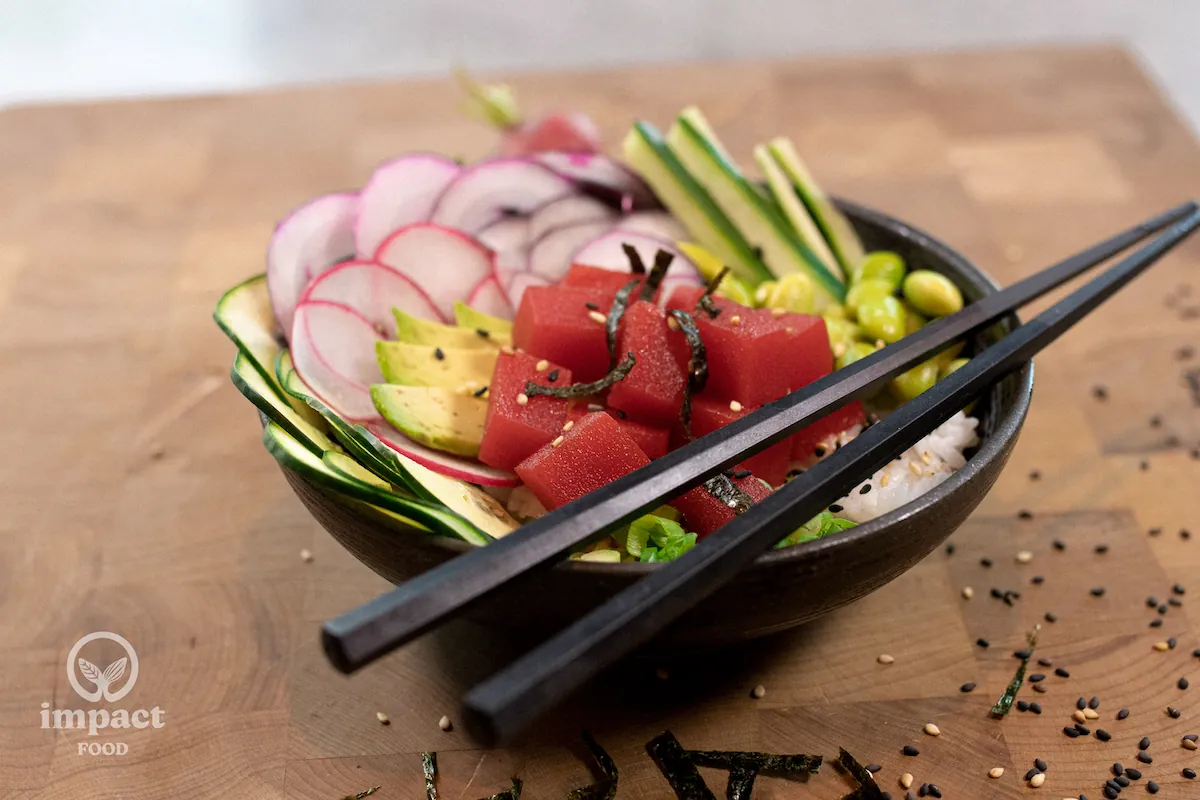
Impact Poke Bowl from Impact Food
PLANT-BASED SEAFOOD
Impact Food was also the product of a multidisciplinary team. This startup was formed at the University of California-Berkeley in response to pollution, which risks many fish species becoming extinct. The Impact Food team includes Kelly Pan, a senior at the Haas School of Business, along with Berkeley grads who majored in Molecular Cell Biology, Computer Science, and Electrical Engineering. Meeting at an entrepreneurship class at Haas, the team discovered a mutual passion for sustainable food. In response, they developed plant-based seafood solutions, pursuing a blue ocean strategy that gave them an edge in a marketplace dominated by the Impossible Burger and Just Egg.
“Creating an entirely new food item – Impact Tuna (plant-based raw sushi-grade tuna) – has been our biggest and most exciting accomplishment thus far,” Pan notes. “It has been great to have consumers with varying dietary preferences taste and provide feedback on our product.”
At the Kenan-Flagler Business School, Harshul Makwana and Kush Jain are part of a three member team that started QUVI, a device that can sanitize reusable water bottles in 30 seconds. Make no mistake: universities are just the beginning of QUVI’s ambitions. “Our vision is to have QUVI’s at gyms, universities, airports and other public areas across the U.S. We want to make sanitizing easy and accessible to all, especially students who have a large need for it. Eventually, we want people to use QUVI so often that it becomes an integral part of their daily routine.”

Nadia Susanto, Carnegie Mellon (Tepper)
GAINING AN ADVANTAGE IN GOLF
In contrast, Fabrizio Mata, a junior at the University of Texas’ McCombs School, has begun publishing El Maletín, a business newsletter designed to connect Latin American entrepreneurs (with podcasts soon to come). By the same token, Nadia Susanto is turning her love of golf into a venture. Partnering with Michael Lim, Susanto developed NoFores, a virtual reality application that enables golfers to study courses before they play them.
“As a student athlete on the Carnegie Mellon women’s golf team, I know how difficult it is to play a new golf course blind and without deep knowledge of it,” explains the Tepper senior. “By having a technology that can help competitive golfers master a course before even playing it, it makes every course their home course advantage.”
Susanto even enjoyed a little home course advantage in developing her solution. “My biggest accomplishment is cold emailing a PGA Tour caddy turned PGA yardage book creator and then to have him give me terrain and slope data to use for our proof of concept.”
Next Page: Profiles of 14 Disruptive Startups From Undergraduate Business Students.











Questions about this article? Email us or leave a comment below.